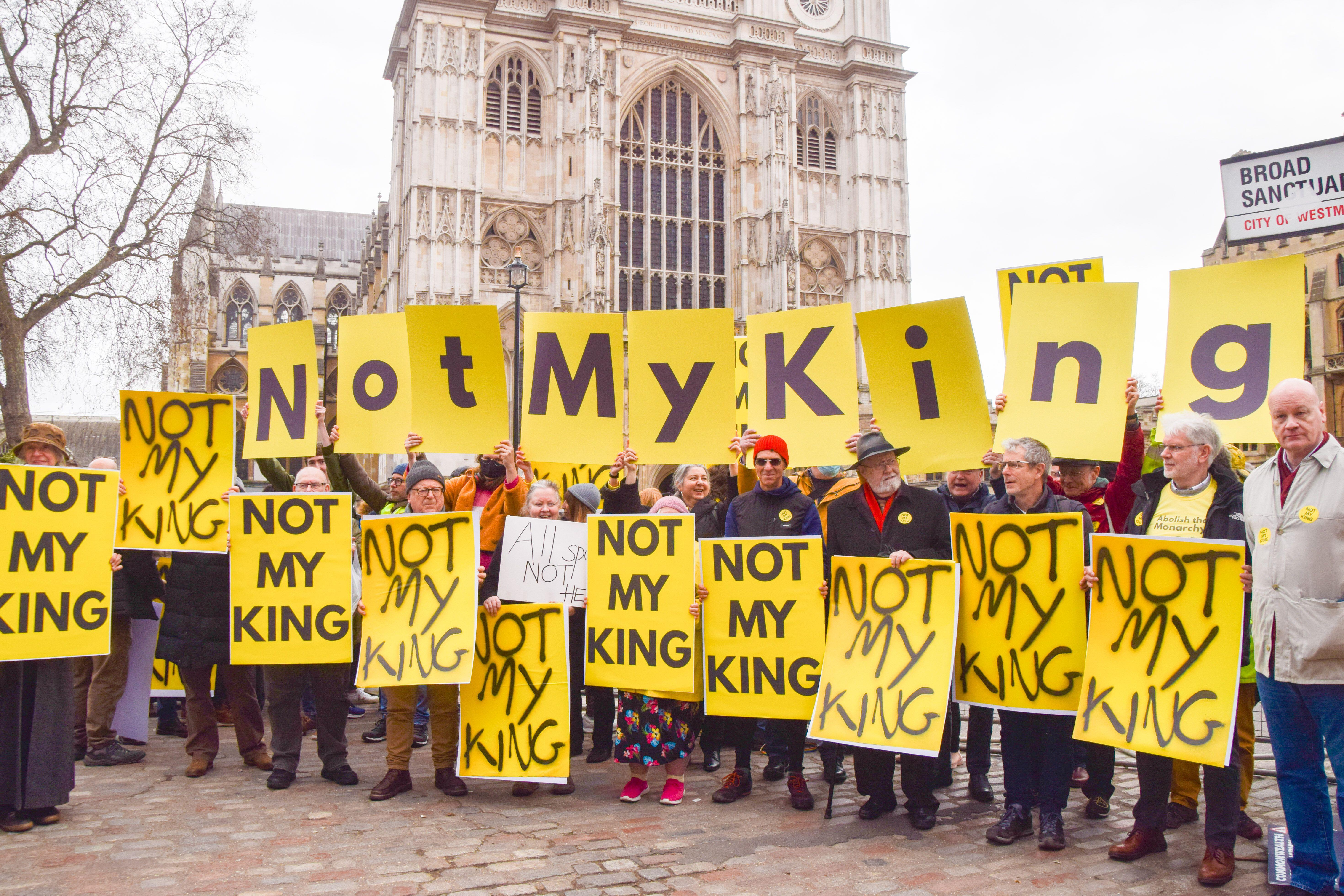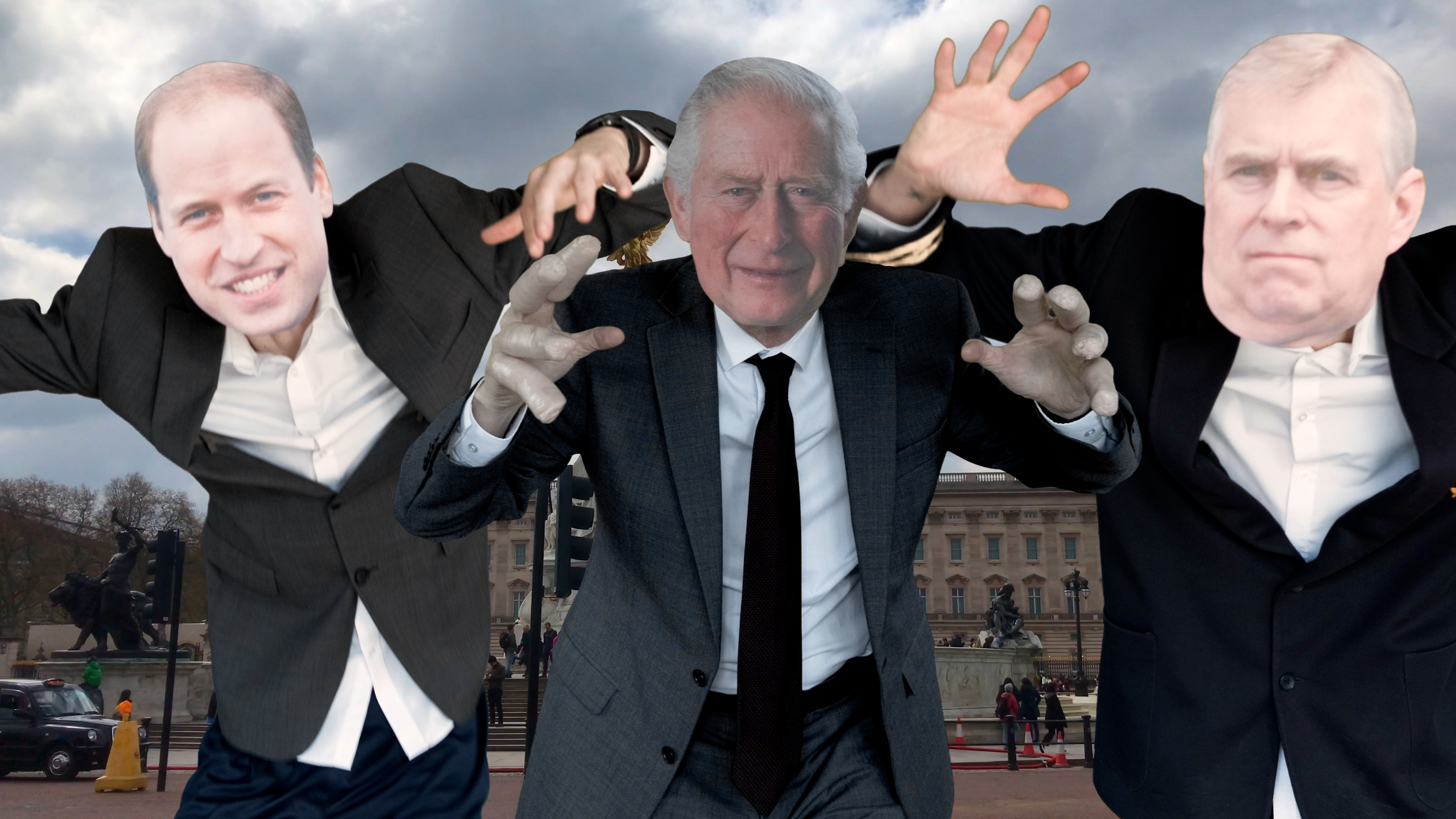James Hawes: The Crown is our necessary lie
If the Crown falls, the UK falls – and then England itself, that traumatised, post-colonial land, will take centre stage for the first time since 1707. And nobody wants that.
Lord Charles Moore, the former Telegraph editor, speaking recently on Radio 4, explained exactly why the United Kingdom can never be a republic: “If it wasn’t a kingdom, it wouldn’t be united.” He is surely right. The foundation myth of Great Britain, and later the United Kingdom, is that we are four nations (well three and and a bit, now), each distinct from all the others yet somehow, almost mystically, linked in a deep, shared culture expressed above all by a time-hallowed monarchy - which, as the Coronation ceremony puts it, “rules and governs” us all. If the Crown goes, “we” go. Try imagining Ulster Loyalists without the Crown: loyal, to what?
The Crown is “our” necessary lie. The truth is that “we” are ruled by a Parliament which enacts the will of England – usually of that part of England which drove through the Reformation, won the Civil War, saw off the Chartists with their attempt to set up an alternative parliament in Manchester, and has been an almost invulnerable Conservative fortress since the advent of mass-electorates: the South.
Insiders knew from the start that it was smoke and mirrors: political thinkers of the early 18th century unblushingly referred to the new state born in 1707 as “the British Republic” despite the fairly obvious fact that it had a king. So why didn’t the all-powerful Whigs go the whole hog and declare a formal republic? After all, their recent political ancestors had executed Charles I in 1649, some of them had plotted to assassinate Charles II in 1683, and in 1689 they had made the astonishing call of inviting the Dutch to invade England and kick out James II. Yet despite their proven readiness for blue-skies radical action, the Whigs knew that a republic just wasn’t on.
"Stop. The English, colonial subjects?"
Because the fact was, England just didn’t work (if inviting the Dutch to invade you isn’t an admission that you live in a failed state, it’s hard to know what would be). Everybody knew what had happened 50 years before. While Elizabeth I had genuinely envisioned a multicultural British Isles centred on loyalty to the Crown - she commissioned Bibles in both Welsh and Gaelic – the New Model Army gave everyone in the archipelago a straight choice: unconditional surrender to its Bible-bashing, south-eastern Englishness, or death. The massacres of Drogheda and Wexford were given a dress-rehearsal on home turf: ISIS-like militants (who even wanted to abolish Christmas) boasted in print that after the decisive victory in Naseby, “100 of your harlots with golden tresses” from the Royalist train were slaughtered in cold blood. What had been intended, by Cromwell & Co., as muscular elite replacement had become the uncontrollably millenarian revolt of a people who had for 600 years been colonial subjects.
Stop. The English, colonial subjects? Well, for four centuries after 1066, whenever they dealings with their betters, in the yard of the Big House, in Court or at Church, it was with people who spoke a completely different language amongst themselves, and on all public occasions. The only time the ordinary English were allowed any self-enactment was as grunts under French-speaking officers, invited to be accepted as most-favoured underlings by helping to crush their Welsh, Scottish and Irish neighbours. The British Empire was so brilliant at enlisting defeated peoples like the Sikhs and the Gurkhas because its officer class had been practising on the colonised English (and later, the defeated Celts) for centuries.
That trick - just talk to them in their own language, don’t at all costs sound like you’re talking half French! - works to this day
Just once, it all burst out. In 1381, the peasants of southern England revolted, stormed London, and played football in the streets with the severed head of the Archbishop of Canterbury. Somehow, the young Richard II instinctively grasped what they really wanted: a king who talked to them, quite literally, in their own language. It was the first time since 1066 that a King of England had addressed his people in English. The peasants rolled over, unstrung their bows, and went home rejoicing (to be hunted down later, naturally). That trick - just talk to them in their own language, don’t at all costs sound like you’re talking half French! - works to this day on Anglo-Saxon mental doorsteps in America as well as England: in popular English-language culture the bad guys always say stuff like “Resistance is futile you will inevitably be be assimilated” (so, basically French); the good guys say stuff like “The hell we will shields up open fire hard a-stardboard” (which Harold’s men at Hastings would have got).
When that French-speaking cultural elite at last began to fragment with the successful invasion (from France, obviously) of Henry Bolingbroke in 1399, ancient English fault lines immediately reappeared. In the Tripartite Indenture of 1405, the Percys of the North and the Mortimers of the South proposed to split England forever into two realms. In 1450, the men of Kent rose up again as they had in 1381 and for three days turned London’s social order on its head. In the jaw-dropping North-vs-South hecatomb at Towton in 1461, about 1% of the entire population of England was hacked to death in a single afternoon. And still, amid the Wars of the Roses, the English elite privately self-defined as ethnically foreign: in 1470, Sir John Fortescue’s potted history of England, written for the Lancastrian Prince Edward, concluded that “last of all the Normans subdued it, whose descent continues in the government of the kingdom at this present.”
Even two hundred years later, in the Civil War, the Conquest was a lived trauma for the ordinary English. They wrote of it in language which is, by no coincidence, the lineal ancestor of Martin Luther King’s oratory. For they still saw themselves as slaves to foreigners in their own land.
O what mighty Delusion, do you, who are the powers of England live in! That while you pretend to throw down that Norman yoke, and Babylonish power, and have promised to make the groaning people of England a Free People; yet you still lift up that Norman yoke, and slavish Tyranny, and holds the People as much in Bondage, as the Bastard Conqueror himself … Therefore, if thou wilt find Mercy, Let Israel go Free! (The True Levellers’ Standard Advanced, 1649)
Driven by age-old visions rather than rational politics, the English revolution ended up as a theocratic military dictatorship which collapsed because nobody would lend it money. Which is why the Whigs of 1689 decided that though they wanted rid of another king, they couldn’t risk another republic.
"We might even get another English Republic."
Indeed, they very soon afterwards decided that England had to be abolished as a separate state. Great Britain, the United Kingdom, and the Empire enabled the invention of a mystical Greater England which was, as Kipling put it, unknowable to those who only knew the actual England. Which explains the otherwise bizarre obsession on the part of the ERG & Co. with maintaining that Northern Ireland is just another part of Great Britain (though it obviously isn’t: there was, for example, no conscription there in World War II). Only the myth of a trans-national, royal unity continues to enable the grand lie which Prof Ciaran Martin, David Cameron’s former constitutional adviser, has memorably christened “Anglocentric British nationalism”.
Which is why, as Charles Moore rightly sees, the Crown must survive. If the Crown falls, the UK falls – and then, England itself, that traumatised, post-colonial land, will take centre stage for the first time since 1707. And nobody wants that. We might even get another English Republic. God save us.
The Lead is now on Substack.
Become a Member, and get our most groundbreaking content first. Become a Founder, and join the newsroom’s internal conversation - meet the writers, the editors and more.





